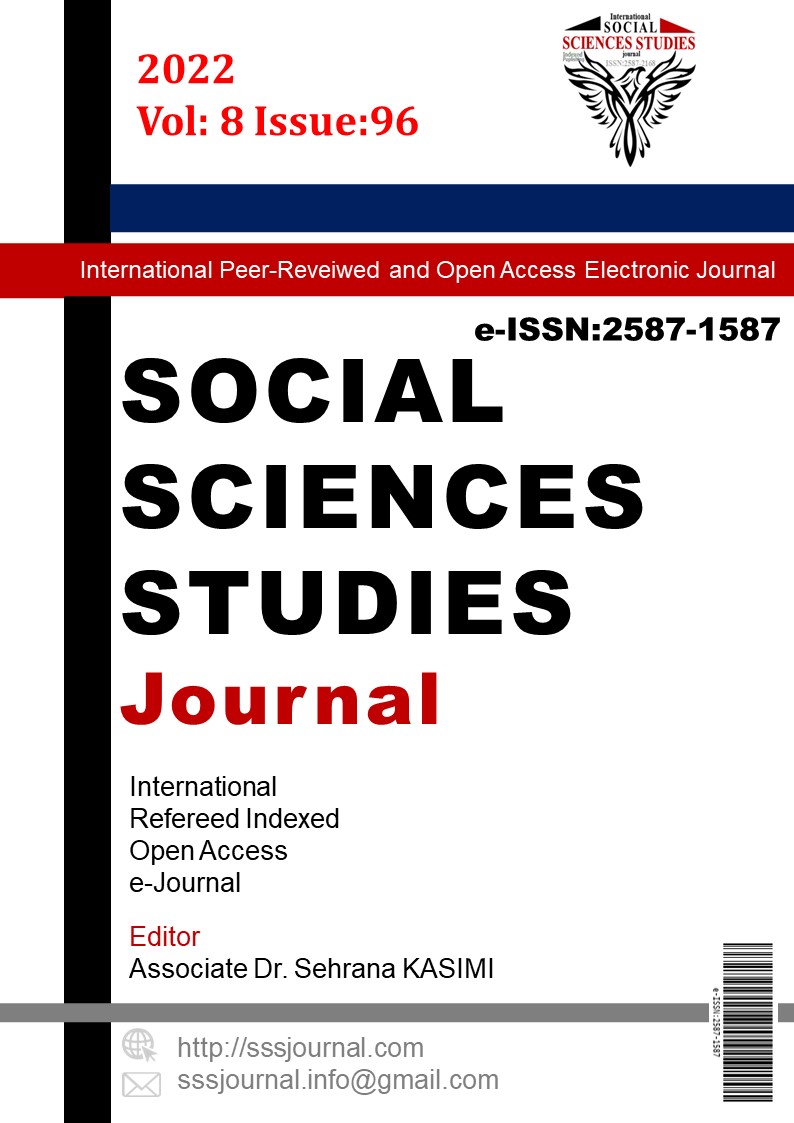Author :
Abstract
The main purpose of this study is to reveal the nature and causes of conflict in high schools and examine the views of school administrators on the tactics adopted for conflict management and correction. The study group of the research, which was carried out in the case study model, consists of school administrators working in high schools in the central district of Batman province. In this direction, 15 school administrators who have been working as principals and assistant principals for at least five years constitute the study group of the research. The data obtained in the research, in which the data were obtained with a semi-structured interview form, were analyzed by content analysis according to the descriptive point of view. At the end of the study, it was seen that school administrators stated that the conflicts in schools were caused by organizational, administrative and individual reasons, and they generally used the strategies of avoidance, concession, domination, compromise and cooperation in the resolution of the conflict in the school.
Keywords
Abstract
Bu çalışmanın temel amacı, liselerde yaşanan çatışmanın doğasını ve nedenlerini ortaya koyarak okul yöneticilerinin çatışmanın yönetimi ve düzeltilmesi için benimsediği taktikler hakkındaki görüşlerini incelemektedir. Durum çalışması modelinde gerçekleştirilen araştırmanın çalışma grubu Batman ili merkez ilçesi liselerinde görev yapan okul yöneticilerinden oluşmaktadır. Bu doğrultuda en az beş yıldır müdür ve müdür yardımcılığı görevini sürdüren 15 okul yöneticisi araştırmanın çalışma grubunu oluşturmaktadır. Verilerin yarı yapılandırılmış görüşme formu ile elde edildiği araştırmada elde edilen veriler betimleyici bakış açısına göre içerik analizi ile çözümlenmiştir. Araştırmanın sonunda okul yöneticilerinin okullarda yaşanan çatışmaları örgütsel, yönetsel ve bireysel nedenlerden kaynaklı olarak ortaya çıktığını belirttikleri ve okulda yaşanan çatışmanın çözümünde ise genellikle kaçınma, taviz verme, hükmetme, uzlaşma ve işbirliği stratejilerini kullandıkları görülmüştür.
Keywords
- Akgöz, E. E. & Cemaloğlu, N. (2020). Ortaokullarda çatışma nedenleri ve çözümüne ilişkin yönetici ve öğretmen
- Akgöz, E. E. & Cemaloğlu, N. (2020). Ortaokullarda çatışma nedenleri ve çözümüne ilişkin yönetici ve öğretmen görüşleri. The Journal of International Education Science, 22 (7), 60-84.
- Bayar, A. (2015). Bir örgüt olarak okulda meydana gelen çatışma nedenleri ve çözüm yollarına yönelik okul müdürlerinin görüşleri. Sakarya University Journal of Education, 5(3), 130-141.
- Büyüköztürk, Ş., Kılıç Çakmak, E., Akgün, Ö. E., Karadeniz, Ş. ve Demirel, F. (2014). Bilimsel araştırma yöntemleri. Ankara: Pegem Akademi.
- Ceylan, A., Ergün, E., & Alpkan, L. (2000). Çatışmanın sebepleri ve yönetimi. Doğuş Üniversitesi Dergisi, 1(2), 39-51.
- Eren, E. (2000). Örgütsel Davranış ve Yönetim Psikolojisi. İstanbul: Beta Basım Yayım Dağıtım A.Ş.
- Fabunmi, M., & Alimba, C. N. (2011). Conflict in school climate: A synopsis of its nature, causes, effects and management approaches. African Journal of Educational Management, 13(2), 213-234.
- Gaffar, A. (2009). Okullarda çatışma: nedenleri ve yönetim stratejileri. Yönetim Bilimleri Dergisi, 3(2), 212-227.
- Göksoy, S., & Argon, T. (2016). Conflicts at Schools and Their Impact on Teachers. Journal of Education and Training studies, 4(4), 197-205.
- Hojbotă, A. M., Butnaru, S., Rotaru, C., & Tiţa, S. (2014). Facing conflicts and violence in schools–a proposal for a new occupation: the mediation counsellor. Procedia-Social and Behavioral Sciences, 142, 396-402.
- Ibarra, L. (2007). Los conflictos escolares: un problema de todos. Facultad de Psicología-Universidad de laHabana. Recuperado de: http://www. psicologiaonline. com/articulos/2007/conflictos_escolares. shtmlrevisado, 8(04), 2012.
- Karip, E. ( 2000). Çatışma Yönetimi. (2. Baskı). Ankara: Pegem A yayıncılık.
- Lichtman, M. (2013). Qualitativeresearch in Education: A user'sguide. Sagepublications.
- Lobera, I. J. (2017). Eating Disorders: A Paradigm of the Biopsychosocial Model of Illness. BoD–Books on Demand.
- Nural, E., Ada, Ş. & Çolak, A. (2012). Öğretmen algılarına göre okul müdürlerinin kullandıkları çatışma yönetimi yöntemleri. Atatürk Üniversitesi Sosyal BilimlerEnstitüsü Dergisi. 16 (3): 197-210.
- Okotoni, O. & Okotoni, A. (2003). Conflict management in secondary schools in Osun State, Nigeria. Nordic Journal of African Studies 12(1), 23-38.
- Özkara, E., & Tunç, B. (2020). Okul yöneticilerinin çatışma yönetim stratejileri ile okul kültürü arasındaki ilişkinin öğretmen görüşlerine göre incelenmesi. Journal of Faculty of Educational Sciences, 53(3), 1023-1050
- Patton, M.Q. (2002). How to use qualitative methods in evaluation. SAGE Publications.
- Şimşek, M. Ş. & Çelik, A. (2008). Çağdaş yönetim ve örgütsel başarım. Konya: Eğitim Kitabevi Yayınları. Turan, S. (2014). Eğitim yönetimi, teori, araştırma ve uygulama. Ankara: Pegem Akademi.
- Üngüren, E. (2008). Örgütsel çatışma yönetimi üzerine konaklama işletmelerinde bir araştırma. Uluslararası Sosyal Araştırmalar Dergisi, TheJournal of International SocialResearch, 1(5), 880-909.
- Yelkikalan, N. (2006). Aile şirketlerinde çatışma ve bir çözüm önerisi: stratejik planlama. Kocaeli Üniversitesi, Sosyal Bilimler Enstitüsü Dergisi, 2 (12), 195-209.
- Yıldırım, A. ve Şimşek, H. (2011). Sosyal bilimlerde nitel araştırma yöntemleri. (8.Baskı). Ankara: Seçkin Yayıncılık.





